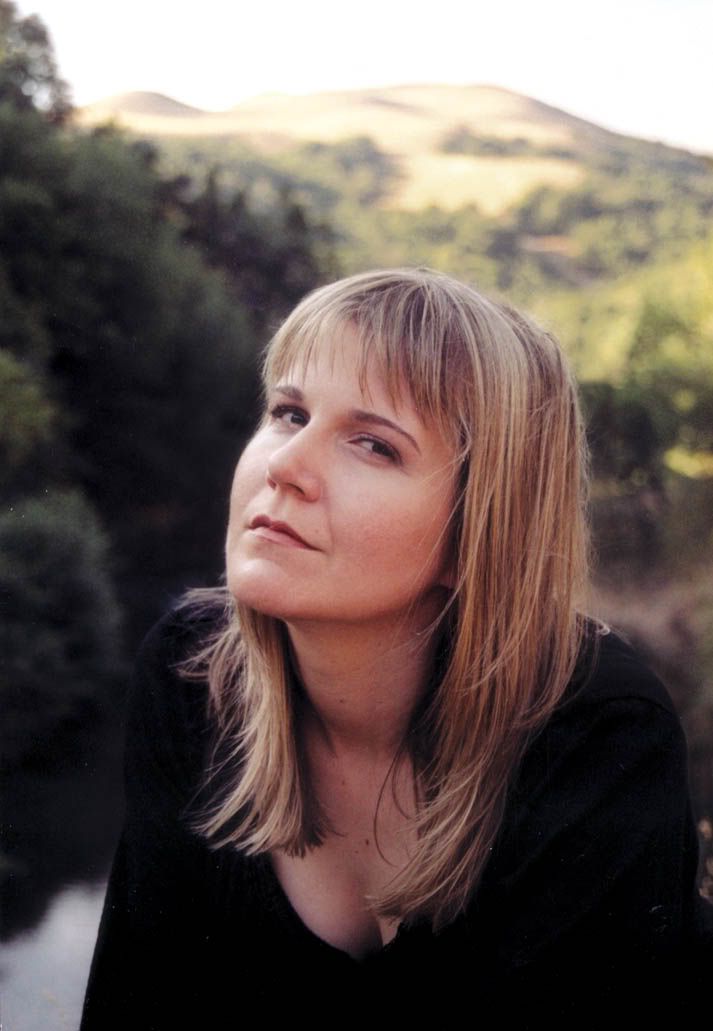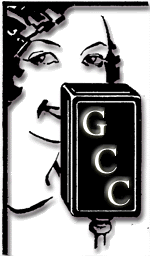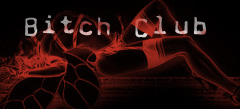'Twas Worth the Wait...
My long-awaited interview with horror author extraordinaire, Deborah LeBlanc, finally arrives! I've never gotten to interview a horror author before, so I got to ask some questions that have truly been buzzing in my head.
MO'C: What is it like being a female horror writer in a genre traditionally dominated by men? Do you think women are breaking into this genre more and more (ie, Anne Rice, Elizabeth Kostova)?
DLEB: It's a struggle being a woman in any male dominated arena! I've fought that battle in the business world for years and now find myself doing the same in publishing. The strange thing is I never started out to be a horror writer. All I wanted to do was write an interesting, provocative story that people would enjoy reading. The publishing industry, as well as reviewers, have labeled me with every genre title except romance and western! When asked what genre I write, my usual comment is psychological thriller or supernatural suspense. For some reason, those genre titles create the mental image in a reader's mind that I originally intended. When readers hear 'horror', the image that comes most readily to mind is one of blood, guts, and gore, and my stories don't follow that vein.
MO'C: I've heard that in horror, it's not so much the bloody descriptions but that feeling of dreadful suspense that creates the true "horror" of any novel. What do you think are some of the best techniques writers can use to create suspense in fiction?
DLEB: In my opinion, horror in any genre is created by putting a well fleshed out character (one the reader cares about) in a dangerous, time sensitive situation. Fear, from a psychological perspective, is created by many elements, the two most common being; fear of the unknown and loss of control with the things or people we do know. When a writer weaves those basic, human fears into his or her story line, that's what keeps me at the edge of my seat and turning pages.
MO'C: Horror fiction often has an allegory associated with it. Rosemary's Baby by Ira Levin, for instance, contains some very profound social statements about the late 60s, and the new roles of women and pregnancy. Is your horror allegorical at all,? Does it contain social commentary in any way and if so, how?
DLEB: My stories do contain social commentary. In Family Inheritance, I wanted more than anything to give vision to two issues; mental illness and the strength of family. Mental illness carries such a social stigma that few of us understand, or want to understand, the true horror experienced by those who suffer with the disease, or the torment and utter sense of hopelessness their family members must bear. I wanted to give these victims a voice. The other social statement, that of family, was written as a reminder that no matter how small or separated or dysfunctional ours may be, there's always hope.
MO'C: In a similar vein, I have seen some horror writers interviewed saying that this genre is the safest place to put social commentary nowadays, that no one is reading straight-out social satire. What's your opinion?
DLEB: Although the horror genre may be an easy venue in which to place a social commentary, there are others just as open. Take Tom Robbins' work for example. His Zen-punk type prose not only throws social issues right into a reader's face, he makes them hilarious and immensely thought provoking. Jodi Picoult is another author who takes social commentary to new heights.
MO'C: A lot of successful horror deals with religion in some way. Why do you feel this is so?
DLEB: I believe it's a simple matter of good versus evil. Religion may get thrown into the mix, but overall, we want the 'good' guy (be it God or the protagonist) to win over evil.
MO'C: It's been my observation that horror was out of vogue for about 20 years or so with the exception of Stephen King. Do you think horror's undergoing a revitalizing period now? Can you name some books that you think are breathing new life into the genre?
DLEB: Yes, I do think horror is undergoing a revitalization, and that opinion's based off the many new 'horror' authors popping up in the genre and the increased interest from Hollywood producers searching for new material.
MO'C: Can you please comment about the classic horror writer HP Lovecraft and how he may have influenced your work, or the genre as a whole?
DLEB: Lovecraft made a significant impact on the horror genre. So much so I believe his work literally created the base line from which many horror authors work. Nearly every horror author I've spoken to admits to being affected and influenced by his work. I'm not one of them, however, because I didn't start reading any of his work until a year ago.
MO'C: What's been the most rewarding thing about being published? The most frustrating?
DLEB: For me, the most rewarding thing about being published is hearing a reader say how much they enjoyed one of my books. The most frustrating is the publishing business itself. I don't believe there's a more antiquated, subjective business on the planet!
MO'C: What advice do you have for aspiring authors?
DLEB: The most valuable advice I ever received as a writer is the one I most often share--Read, read, read, write, write, write, and NEVER give up!
MO'C: What's next for Deborah LeBlanc?
DLEB: Another new suspense release in '06, and a mystery series that I hope will be launched in '07!
You may buy Deborah's most recent novel, Family Inheritance, at Amazon, Barnes and Noble, or my personal favorite, Booksense. For more great information on the horror genre and Deborah's books, visit her website!
MO'C: What is it like being a female horror writer in a genre traditionally dominated by men? Do you think women are breaking into this genre more and more (ie, Anne Rice, Elizabeth Kostova)?
DLEB: It's a struggle being a woman in any male dominated arena! I've fought that battle in the business world for years and now find myself doing the same in publishing. The strange thing is I never started out to be a horror writer. All I wanted to do was write an interesting, provocative story that people would enjoy reading. The publishing industry, as well as reviewers, have labeled me with every genre title except romance and western! When asked what genre I write, my usual comment is psychological thriller or supernatural suspense. For some reason, those genre titles create the mental image in a reader's mind that I originally intended. When readers hear 'horror', the image that comes most readily to mind is one of blood, guts, and gore, and my stories don't follow that vein.
MO'C: I've heard that in horror, it's not so much the bloody descriptions but that feeling of dreadful suspense that creates the true "horror" of any novel. What do you think are some of the best techniques writers can use to create suspense in fiction?
DLEB: In my opinion, horror in any genre is created by putting a well fleshed out character (one the reader cares about) in a dangerous, time sensitive situation. Fear, from a psychological perspective, is created by many elements, the two most common being; fear of the unknown and loss of control with the things or people we do know. When a writer weaves those basic, human fears into his or her story line, that's what keeps me at the edge of my seat and turning pages.
MO'C: Horror fiction often has an allegory associated with it. Rosemary's Baby by Ira Levin, for instance, contains some very profound social statements about the late 60s, and the new roles of women and pregnancy. Is your horror allegorical at all,? Does it contain social commentary in any way and if so, how?
DLEB: My stories do contain social commentary. In Family Inheritance, I wanted more than anything to give vision to two issues; mental illness and the strength of family. Mental illness carries such a social stigma that few of us understand, or want to understand, the true horror experienced by those who suffer with the disease, or the torment and utter sense of hopelessness their family members must bear. I wanted to give these victims a voice. The other social statement, that of family, was written as a reminder that no matter how small or separated or dysfunctional ours may be, there's always hope.
MO'C: In a similar vein, I have seen some horror writers interviewed saying that this genre is the safest place to put social commentary nowadays, that no one is reading straight-out social satire. What's your opinion?
DLEB: Although the horror genre may be an easy venue in which to place a social commentary, there are others just as open. Take Tom Robbins' work for example. His Zen-punk type prose not only throws social issues right into a reader's face, he makes them hilarious and immensely thought provoking. Jodi Picoult is another author who takes social commentary to new heights.
MO'C: A lot of successful horror deals with religion in some way. Why do you feel this is so?
DLEB: I believe it's a simple matter of good versus evil. Religion may get thrown into the mix, but overall, we want the 'good' guy (be it God or the protagonist) to win over evil.
MO'C: It's been my observation that horror was out of vogue for about 20 years or so with the exception of Stephen King. Do you think horror's undergoing a revitalizing period now? Can you name some books that you think are breathing new life into the genre?
DLEB: Yes, I do think horror is undergoing a revitalization, and that opinion's based off the many new 'horror' authors popping up in the genre and the increased interest from Hollywood producers searching for new material.
MO'C: Can you please comment about the classic horror writer HP Lovecraft and how he may have influenced your work, or the genre as a whole?
DLEB: Lovecraft made a significant impact on the horror genre. So much so I believe his work literally created the base line from which many horror authors work. Nearly every horror author I've spoken to admits to being affected and influenced by his work. I'm not one of them, however, because I didn't start reading any of his work until a year ago.
MO'C: What's been the most rewarding thing about being published? The most frustrating?
DLEB: For me, the most rewarding thing about being published is hearing a reader say how much they enjoyed one of my books. The most frustrating is the publishing business itself. I don't believe there's a more antiquated, subjective business on the planet!
MO'C: What advice do you have for aspiring authors?
DLEB: The most valuable advice I ever received as a writer is the one I most often share--Read, read, read, write, write, write, and NEVER give up!
MO'C: What's next for Deborah LeBlanc?
DLEB: Another new suspense release in '06, and a mystery series that I hope will be launched in '07!
You may buy Deborah's most recent novel, Family Inheritance, at Amazon, Barnes and Noble, or my personal favorite, Booksense. For more great information on the horror genre and Deborah's books, visit her website!








<< Home